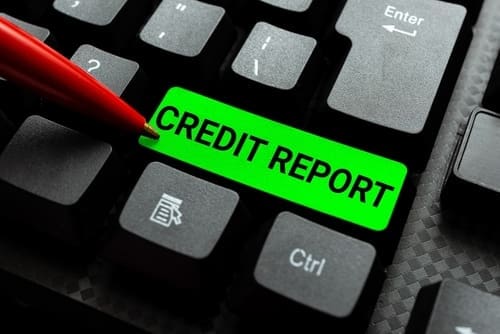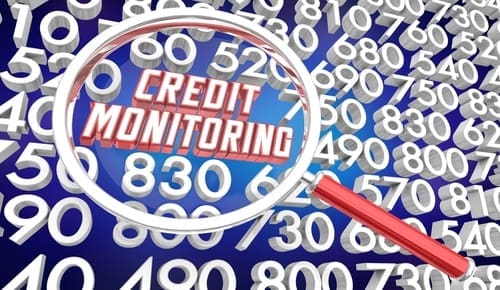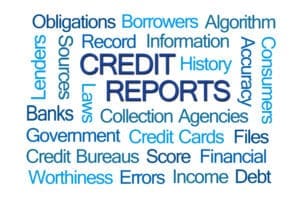How to Boost Your Credit Score: A Smart Saver’s Guide! Find Out More In Our Latest Article!
THIS ARTICLE MAY CONTAIN AFFILIATE LINKS, MEANING I GET A COMMISSION IF YOU DECIDE TO MAKE A PURCHASE THROUGH MY LINKS AT NO COST TO YOU. PLEASE READ MY AFFILIATE DISCLOSURE FOR MORE INFO.
DON’T HAVE TIME TO READ THE FULL ARTICLE. HERE’S WHAT YOU ARE MISSING.
Boosting your credit score is an essential part of maintaining a healthy financial life. Whether you’re looking for a loan, applying for a credit card, or renting an apartment, your credit score plays a significant role in determining your eligibility and interest rates.
In this article, I will provide you with a comprehensive guide on how to boost your credit score and become a smart saver.

To begin with, it’s crucial to understand what a credit score is and how it’s calculated. Your credit score is a three-digit number that ranges from 300 to 850 and reflects your creditworthiness. The higher your credit score, the better your chances of getting approved for credit and securing lower interest rates. Factors that affect your credit score include payment history, credit utilization, length of credit history, and types of credit accounts.
In this guide, I will walk you through the steps of analyzing your current credit report, identifying strategies for credit score improvement, managing your debt, building a strong credit profile, and monitoring and maintaining your credit score. By following these steps, you’ll be able to boost your credit score and become a smart saver. Let’s get started!
Understanding Credit Scores

What Is a Credit Score?
A credit score is a three-digit number that represents your creditworthiness. It is a measure of how likely you are to repay your debts on time. A higher credit score indicates that you are a responsible borrower and are more likely to get approved for loans and credit cards with better terms.
Credit scores are calculated by credit bureaus such as Equifax, Experian, and TransUnion. They use a variety of factors to determine your credit score, including your payment history, credit utilization, length of credit history, types of credit accounts, and recent credit inquiries.
Factors Affecting Credit Scores
Your credit score is influenced by several factors, some of which carry more weight than others. Here are some of the most important factors that affect your credit score:
- Payment history: This is the most important factor that affects your credit score. Lenders want to see that you have a history of making on-time payments.
- Credit utilization: This is the amount of credit you are using compared to your credit limit. Lenders like to see a low credit utilization ratio, which indicates that you are not relying heavily on credit.
- Length of credit history: This is the amount of time you have been using credit. A longer credit history generally indicates that you are a more experienced borrower.
- Types of credit accounts: Lenders like to see a mix of different types of credit accounts, such as credit cards, auto loans, and mortgages.
- Recent credit inquiries: This is the number of times you have applied for credit recently. Too many inquiries can lower your credit score.
Understanding these factors and how they affect your credit score is essential to improving your creditworthiness. By focusing on these factors and maintaining healthy credit habits, you can boost your credit score and achieve your financial goals.
Analyzing Your Current Credit Report

As a smart saver, one of the first steps you should take to boost your credit score is to analyze your current credit report. By doing so, you can identify any errors or inconsistencies that may be negatively affecting your score.
How to Obtain Your Credit Report
To obtain your credit report, you can visit the websites of the three major credit bureaus: Equifax, Experian, and TransUnion. Each bureau is required by law to provide you with a free copy of your credit report once a year. You can also request a copy of your report by phone or mail.
Once you have obtained your report, it’s important to review it carefully. Make sure that all of the information on your report is accurate and up-to-date. This includes your personal information, such as your name and address, as well as your credit accounts and payment history.
Identifying Errors and Inconsistencies
When analyzing your credit report, pay special attention to any errors or inconsistencies. These may include incorrect account balances, late payments that you did not make, or accounts that do not belong to you.
If you do find errors or inconsistencies on your credit report, you should dispute them with the credit bureau in question. This may involve providing documentation to support your claim, such as copies of canceled checks or credit card statements.
By taking the time to analyze your credit report and identify any errors or inconsistencies, you can take steps to correct them and improve your credit score. This will not only help you qualify for better interest rates on loans and credit cards, but it will also give you peace of mind knowing that your credit report is accurate and up-to-date.
Strategies for Credit Score Improvement

Improving your credit score can seem like a daunting task, but with some smart strategies, it is achievable. Here are some key steps to follow:
On-Time Payments
One of the most important factors in determining your credit score is your payment history. Late payments can have a significant negative impact on your score. To improve your score, make sure to always pay your bills on time. Set up automatic payments or reminders to help you stay on track.
Credit Utilization Ratio
Another key factor in your credit score is your credit utilization ratio, which is the amount of credit you are using compared to your credit limit. To improve your score, aim to keep your credit utilization ratio below 30%. If you have high balances, consider paying them down or asking for a credit limit increase.
Length of Credit History
The length of your credit history also plays a role in your credit score. To improve your score, aim to keep your oldest credit accounts open and active. Avoid opening too many new accounts at once, as this can lower the average age of your credit history.
By following these strategies, you can boost your credit score and improve your financial health. Remember to always monitor your credit report and stay on top of your finances to maintain a good credit score.
Debt Management Techniques

As a smart saver, managing your debt is crucial to boosting your credit score. Here are two debt management techniques that can help you achieve your financial goals:
Debt Consolidation
If you have multiple debts with high interest rates, consolidating them into one loan with a lower interest rate can help you save money and simplify your payments. There are different ways to consolidate debt, such as getting a personal loan, using a balance transfer credit card, or borrowing against your home equity.
Before consolidating your debt, make sure to compare the interest rates and fees of different options, and calculate how much you can afford to pay each month. Also, be aware that consolidating your debt may extend the repayment period and increase the total cost of your debt.
Negotiating with Creditors
If you are struggling to make your payments or have fallen behind on your debt, negotiating with your creditors can be a smart move. Depending on your situation, you may be able to negotiate a lower interest rate, a payment plan, or a settlement that reduces your total debt.
To negotiate with your creditors, you need to be honest about your financial situation, explain why you are having difficulty paying your debt, and propose a solution that works for both parties. You can also seek the help of a credit counseling agency or a debt settlement company, but be cautious of scams and high fees.
By using these debt management techniques, you can take control of your debt, improve your credit score, and achieve your financial goals.
Building a Strong Credit Profile

As a smart saver, building a strong credit profile is essential to achieving a high credit score. Here are some tips to help you build a strong credit profile:
Types of Credit to Consider
To build a strong credit profile, it’s important to have a mix of credit types. This includes revolving credit (such as credit cards) and installment loans (such as car loans or mortgages). Having a mix of credit types shows lenders that you can handle different types of credit responsibly.
Responsible Use of Credit
Another important factor in building a strong credit profile is responsible use of credit. This means paying your bills on time, keeping your credit card balances low, and avoiding opening too many new accounts at once.
It’s also important to check your credit report regularly to ensure that there are no errors or fraudulent activity. You can request a free credit report from each of the three major credit bureaus once a year.
By following these tips, you can build a strong credit profile and boost your credit score. Remember, building good credit takes time and effort, but it’s worth it in the long run.
Credit Monitoring and Maintenance

As a smart saver, it’s important to monitor and maintain your credit score regularly. This helps you stay on top of any changes to your credit report and identify potential errors or fraudulent activity.
Regular Credit Checks
One of the best ways to monitor your credit score is by checking your credit report regularly. You can get a free credit report from each of the three major credit bureaus once a year at AnnualCreditReport.com. It’s a good idea to stagger your requests so that you can check your report every four months.
When reviewing your credit report, look for any errors or inaccuracies, such as incorrect personal information or accounts that don’t belong to you. If you find any errors, you can dispute them with the credit bureau to have them corrected.
Alerts and Identity Protection Services
Another way to monitor your credit score is by signing up for credit monitoring and identity protection services. These services can alert you to any changes or suspicious activity on your credit report, such as new accounts being opened in your name or a sudden drop in your credit score.
Some credit monitoring services also offer identity theft insurance, which can help cover the costs of recovering from identity theft. However, it’s important to read the terms and conditions carefully to understand what is covered and what is not.
By regularly monitoring and maintaining your credit score, you can stay informed and protect yourself from potential fraud or errors on your credit report.
Navigating Credit Counseling and Repair

As a smart saver, you know how important it is to maintain a good credit score. However, sometimes life happens and you may find yourself in a situation where your credit score has taken a hit. In these cases, credit counseling and repair services can be helpful tools to get you back on track. Here are some things to keep in mind when navigating credit counseling and repair.
When to Seek Credit Counseling
If you’re struggling to make payments on your debts or you’re not sure how to create a budget, credit counseling can be a great resource. A credit counselor can work with you to create a budget, negotiate with creditors, and provide guidance on how to manage your finances. It’s important to note that credit counseling is not a quick fix and it may take time to see improvement in your credit score.
Avoiding Credit Repair Scams
While credit repair companies may promise to fix your credit score quickly, many of these services are scams. It’s important to do your research and be wary of any company that asks for payment upfront or promises to remove accurate information from your credit report. Legitimate credit repair companies will work with you to dispute inaccurate information on your credit report, but they cannot remove accurate information.
When seeking credit counseling or repair services, it’s important to choose a reputable organization. Look for organizations that are accredited by the National Foundation for Credit Counseling or the Financial Counseling Association of America. These organizations have strict standards for their members and can provide you with a list of reputable credit counseling and repair services in your area.
By keeping these tips in mind, you can navigate credit counseling and repair services with confidence and work towards improving your credit score.
Frequently Asked Questions
What are effective strategies to improve a credit score quickly?
To improve your credit score quickly, you can try paying off your outstanding debts, disputing any errors on your credit report, and keeping your credit utilization ratio low. Another strategy is to become an authorized user on someone else’s credit account, but make sure that the account is in good standing and has a low balance.
Can a credit score be increased by 200 points within three months, and if so, how?
While it is possible to increase your credit score by 200 points within three months, it is not a guarantee. To achieve this, you should focus on paying off your debts, disputing any errors on your credit report, and keeping your credit utilization ratio low. It may also be helpful to become an authorized user on someone else’s credit account.
What steps can I take to raise my credit score by 100 points in one month?
Raising your credit score by 100 points in one month is a lofty goal, but it can be achieved by paying off your outstanding debts, disputing any errors on your credit report, and keeping your credit utilization ratio low. You may also want to consider becoming an authorized user on someone else’s credit account.
Is it possible to significantly boost my credit score overnight, and what methods are involved?
It is not possible to significantly boost your credit score overnight. Improving your credit score takes time and consistent effort. To improve your credit score, you should focus on paying off your debts, disputing any errors on your credit report, and keeping your credit utilization ratio low.
What timeline should I expect when trying to improve my credit score by 20 points?
Improving your credit score by 20 points can take anywhere from a few weeks to a few months. The timeline depends on how much debt you have, how many errors are on your credit report, and how quickly you can pay off your debts.
What actions can lead to achieving an 800 credit score?
Achieving an 800 credit score requires a long-term commitment to responsible credit behavior. This includes paying your bills on time, keeping your credit utilization ratio low, and maintaining a diverse mix of credit accounts. It is also important to monitor your credit report regularly and dispute any errors that may negatively impact your score.
Disclaimer: Millennial Credit Advisers is not a licensed credit service provider or financial advisor. We do not offer credit repair, debt management, or legal services. Educate yourself on saving, reducing debt, and managing credit for economic improvement. Understand credit reports, scores, and financial products. Consult a financial advisor for personalized guidance. Track your progress for an improved credit journey.
Written content – “Please view our complete AI Use Disclosure.”
We enhance our products and advertising by using Microsoft Clarity to understand how you interact with our website. Using our site, you agree that we and Microsoft can collect and utilize this data. Our privacy policy provides further details.
















